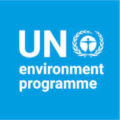Associate Legal Officer
JOB DETAIL
Mission and objectives
Since its inception in 1972, the United Nations Environment Programme (UNEP) has been the global authority that sets the environmental agenda, promotes the coherent implementation of the environmental dimension of sustainable development within the United Nations system and serves as an authoritative advocate for the global environment. UNEP’s mission is to provide leadership and encourage partnership in caring for the environment by inspiring, informing, and enabling nations and peoples to improve their quality of life without compromising that of future generations. Headquartered in Nairobi, Kenya, UNEP works through its divisions as well as regional, liaison and out-posted offices and a growing network of collaborating centres of excellence.
Context
The Law Division is the lead Division charged with carrying out the functions of UNEP in the field of environmental law, governance and related policy issues, including those related to multilateral environmental agreements (MEAs). This National UN Volunteer position is in the Montevideo Coordination and Delivery Unit (MCDU). The objectives of MCDU are as follows:- i. To serve as secretariat of the Montevideo Programme and work with Member States in an intergovernmental process to develop and implement priority areas of the Montevideo Programme V; ii. To provide technical assistance and advisory services to countries upon request to develop, strengthen and implement environmental laws and institutional frameworks. iii. To strengthen partnerships with various environmental law institutions and stakeholders including MEA Secretariats to enhance the application of environmental law. iv. To expand the knowledge base in the field of environmental law and to ensure a wider appreciation of environmental law through information products such as studies, publications, online digital platforms, environmental law tool kits and multimedia information products. v. To convene Meetings of the Steering Committee of Implementation to monitor the progress of the implementation of Montevideo Programme V as well as convening Global Meetings of National Focal Points of Montevideo Programme V.
Task Description
Under the general guidance of the Head, MCDU and the day-to-day supervision of the Legal Officer, MCDU the UNV Associate Legal Officer will: • Assist in providing technical legal assistance to countries to develop, strengthen and implement national environmental legislation, including framework environmental laws, climate change-related laws, biodiversity-related laws and pollution-related national legislation. • Assist in initiating and implementing capacity-building initiatives under the UNEP Programme of Work and the Montevideo V Project focusing on various stakeholders including Government officials, Parliamentarians, Legal Practitioners, Academicians, Law Enforcement Officials etc. • Assist in organizing and servicing environmental law meetings including unit meetings, issue-based meetings, and Montevideo Programme V meetings that are organized by the Unit. • Assist in collating from colleagues in the unit and providing input for quarterly reports and other reports required from time to time. • Prepare routine correspondence, briefs and legal documents using various templates such as for Small Scale Funding Agreements (SSFAs) and undertaking due diligence procedures in the Partnership Portal as well as Consultancies in Inspira among other templates found in Teams. • Undertake studies, and review and prepare publications and assist in updating online products of the Unit including Law and Environmental Assistance Platform (LEAP) and other unit toolkits. • Undertake other activities as assigned by the Head of Unit and the supervisor.
Competencies and values
• Professionalism • Planning and organising • Teamwork
Living conditions and remarks
The Republic of Kenya is an equatorial nation on the coast of East Africa, neighboring Somalia, Ethi-opia, Sudan, Uganda, Tanzania, and the Indian Ocean. Kenya has two levels of Government; Na-tional Government and 47 sub-national Governments called Counties. Counties are further divided into sub-counties. Kenya is a multi-party state with Executive, Legislative, and Judicial branches. Kenya’s population of more than 40 million is growing at an annual rate of 2.2%. The country’s GNP per capita estimated at purchasing power parity (PPP) is $975, and the GNP is growing at an average rate of 0.1% annually. More than 26% of Kenya’s people live below the international poverty line of $1 per day. Kenya’s main food crops are “maize, wheat, pulses, roots and tubers.” (FAO). Nairobi is a modern metropolitan city where most basic goods and services, health facilities, public transport, telecommunication and banking services and educational facilities are readily available. The city is widely connected through its main airport, Jomo Kenyatta International Airport and the smaller Wilson Airport. Air transport is also available to many up-country destinations. The city is home to some 3,000 UN personnel mainly attributed to the fact that it serves as the headquarters for both the UN HABITAT and UNEP. The socio-economic and cultural background of the immediate society the UNV would be living and working in is diverse and prevailing security conditions at the place of assignment is modest. The topographic and climatic features of the assignment location is highland cool and warm tropical climate.



